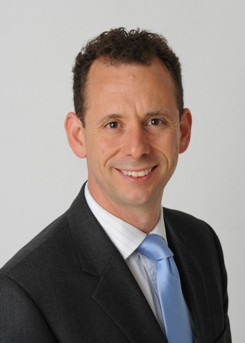Once the Unified Patent Court has started functioning, local divisions may have to consolidate into regional divisions or shut down altogether, because it turns out they have too few cases to prosper. That is the expectation of Richard Vary, head of litigation of Nokia.

At the Unitary Patent Package Conference in Amsterdam last February, Vary told Kluwer IP Law that forum shopping under the new UPC system will definitely happen. That is not necessarily a bad thing, he thinks. ‘In Germany the result of competition between the four specialized IP courts is that they have become steadily faster. In Mannheim you will now get to a trial and a decision in less than nine months, whereas in the UK and many other countries it takes one to two years, or even up to five years in others.’
Users of the new UPC system, with its local, regional and central divisions will be quick to find their favorite venues for litigation, according to Vary. It means other courts may be faced with a lack of cases.
‘At the conference someone mentioned his concern that there will be too many small courts. I don’t think that is going to happen. I think that we will see clusters develop very quickly. People will start to choose favorite courts and those will prosper. And in the longer term other local divisions will probably disappear one way or another. It is a difficult political decision for a country to shut down its local division altogether and to say is not attracting enough cases, so they might become combined into regional divisions.’
Vary acknowledges there is a risk that competition between divisions and their struggle for clients will have negative consequences: ‘We don’t want courts making decisions that are excessively favorable to one party, just so that more people bring cases there. That’s what we’ve seen in the United States. I think the UPC judges will try extremely hard to make sure the competition is based on quality. That’s their mindset, they are trained to be fair, they are selected because they are very even-handed people. I’m not worried about that. What I am worried about is the self-selection. If one court is perceived as more patentee friendly, then people will file more and more cases there and many good quality, balanced and even-handed courts might find themselves with fewer cases. That is a concern.’
The future UPC Court of Appeal in Luxemburg will have an important role to prevent this, he says: ‘If a court becomes obviously excessively pro-patentee and is chasing popularity, then the Appeal Court will bring that court back in.’
For Nokia, the main concern about the new UPC system is the uncertainty: ‘We have a large number of patents. But over the last few years we have also been one of the most frequently sued companies. We are in a high tech industry where there are a lot of patents, a lot of litigation and a lot of very complicated technical arguments. We are entering a new world for something which is very valuable and important to us, so we hope it works well. ‘
 For regular updates on the UPC, subscribe to the free Kluwer IP Law Newsletter.
For regular updates on the UPC, subscribe to the free Kluwer IP Law Newsletter.
________________________
To make sure you do not miss out on regular updates from the Kluwer Patent Blog, please subscribe here.


